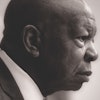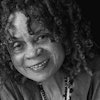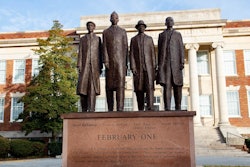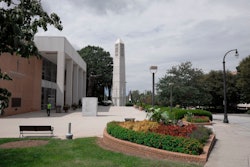SAN JUAN, P.R—Hundreds of scholars converged on this island on Thursday to strategize about current issues and trends impacting the future of higher education.
“Spanning & Unsettling the Borders of Higher Education,” the theme of this year’s Association for the Study of Higher Education (ASHE) explored a range of topics from access and diversity in international education, to the racialization of minoritized college students.
A panel titled, “Pell Restoration for Incarcerated Individuals: Unsettling the Borders of Higher Education in Prison,” organized by The Education Trust—a national nonprofit that works to close opportunity gaps that disproportionately affect students of color and students from low-income families— centered the voices of formerly incarcerated individuals who overcame odds and attained their bachelor’s or master’s degree. These participants in the Justice Fellows Policy Program have created programs and organizations for the formerly incarcerated community and engaged in state legislative advocacy efforts.
Since the 1994 Crime Bill, formerly and currently incarcerated people had been banned from Pell Grant funding. In December, Congress lifted the Pell Grant ban with bipartisan support, expanding Pell only to incarcerated students who attend prison education programs that federal or state correctional authorities approve as operating in “the best interest of students.” This summer, the U.S. Department of Education announced that it would expand the Second Chance Pell experiment for the 2022-2023 award year, noting that the Second Chance Pell experiment provided education opportunities for thousands of justice-involved individuals who have previously been unable to access federal need-based financial aid.
Department of Education officials argued that the expansion of such programs will allow up to 200 colleges and universities to offer their prison education programs with support from the Pell Grant program, up from the 131 currently participating. To date, students have earned over 7,000 credentials, building new skills and improving their odds of success.
First rolled in 2015 by former President Obama, the initiative is designed to expand access and equity in higher education, while also helping to reduce recidivism rates.
William Gregory Freeman, a Justice Fellow, served 21 years in prison, earned a college degree through the Goucher Prison Education Partnership (GPEP) and is currently enrolled in a full-time graduate student at the Johns Hopkins Bloomberg School of Public Health.
He joined other fellows—Rabia Quatab and Patrick Rodriguez—on a panel, to recount the many challenges that so many incarcerated students face in pursuing a college degree in prison face, due to a lack of resources and support. These challenges include, a lack of access to technology—forcing some students, for example, to write a 30-page research paper by hand.
“It is time for us to shift the framework,” said Rodriguez, co-executive director for the Georgia Coalition for Higher Education in Prison and the Director of Special Projects for Common Good Atlanta. After he was released from prison in 2019, Rodriguez enrolled as a student at Kennesaw State University in Georgia.
Satra Taylor, manager of higher education justice initiatives at The Education Trust, said that forging public-private partnerships is key to ensure that these educational programs are available to incarcerated students when they exit prison.
“Higher education institutions can’t do it all,” she said, noting that the transition to college is not easy for any student, but is particularly daunting for those committed to continue to their studies post-incarceration. “How do you make sure that you not only can provide access to higher education upon release, but also help students navigate it.”
The focus on prison education programs aligned with other ASHE conference sessions that called on scholars to reimagine equity within higher education.
In his presidential address, Dr. D-L Stewart, who is also the chair of the Higher Education in the Morgridge College of Education at the University of Denver, challenged those gathered in-person and virtually at the conference, to engage in critical scholarship that “unsettles the demarcation between the street and the ivory tower and spans the gulf between theorizing and policy.”
Stewart’s rousing speech called on the almost 50-year-old organization to boldly tackle issues relating to race, gender, disability and indigeneity.
“I stand here this morning, as the fourth in the line of Black presidents with the fifth on deck this week, Black presidents of ASHE,” he said, referencing Dr. Joy Gaston Gayles, a professor of Higher Education and program coordinator in the Department of Educational Leadership, Policy, and Human Development at North Carolina State University. Gayles is slated to take the helm of the organization at the conclusion of the conference this week.
“I am also the first trans person of this association. I am also the first to inhabit all three of those social categories: Black queer; trans, as well as having multiple disabilities despite not being regarded as such.”
Moving forward, Stewart called on scholars to bring a “policy consciousness” to their work.





















